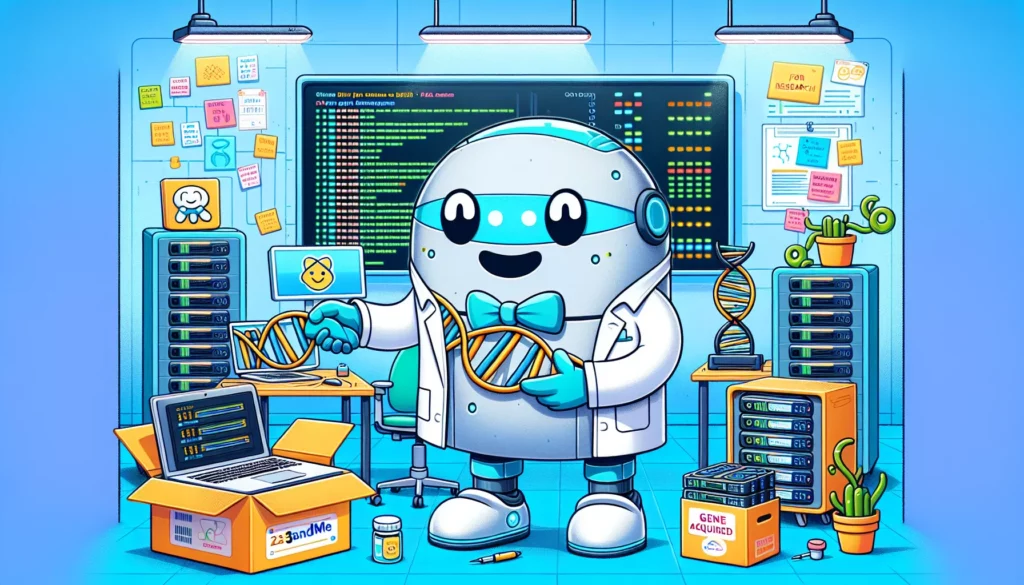Acquisition of Genetic Data from 23andMe by Pharmaceutical Organization
The recent acquisition of the bankrupt genetic testing company 23andMe by Regeneron Pharmaceuticals for $256 million raises significant questions about the motivations and implications of this transaction. Regeneron, a prominent biotechnology firm known for developing life-changing medicines for serious health conditions, appears to be primarily interested in the vast genetic data repository amassed by 23andMe, which includes sensitive information from approximately 15 million customers.
This acquisition sparks critical ethical, privacy, and security considerations that must not be overlooked. Regeneron has recognized the importance of customer data protection by committing to uphold data privacy and collaborating with a court-appointed Customer Privacy Ombudsman to ensure ethical management of the genetic information.
Dr. George Yancopoulos, president of Regeneron, articulated the company’s mission to enhance personal health insights for individuals through 23andMe’s platform, while simultaneously advancing their own objectives in improving public health outcomes.
Despite assurances from Regeneron, concerns remain regarding the potential misuse of genetic data, particularly amid fears articulated by some policymakers about foreign entities potentially accessing sensitive information. These concerns underscore the need for stronger data protections, as genetic data possesses unique sensitivity that extends beyond typical medical records, usually shielded under HIPAA regulations, to encompass more personal elements such as health risks and ancestral lineage.
In light of these developments, it’s crucial for consumers to take proactive steps to manage their data on 23andMe. Here are three key actions individuals can consider to safeguard their genetic information:
1. Delete Your Genetic Data from 23andMe:
Customers wishing to remove their genetic information can do so by logging into their account and navigating to the Settings section, where they can initiate data deletion. This process involves verifying their date of birth and following the sequential prompts to confirm the deletion request.
2. Destroy Your 23andMe Test Sample:
For those who previously chose to retain their saliva sample, preferences can be altered through the Preferences section found in the account settings.
3. Revoke Research Permissions:
Users who consented to allow their genetic data to be utilized for research purposes via 23andMe can easily withdraw their consent through the Research and Product Consents area in their account settings.
Furthermore, amid ongoing concerns about data breaches, it is advisable for individuals to verify whether their information has been compromised. Utilizing available tools, such as digital footprint scanners, can assist in identifying any data exposure and guide users on subsequent protective measures.
In these evolving circumstances, the complexity of consumer genetic data management necessitates increased awareness and proactive engagement from users, particularly in light of potential vulnerabilities arising from corporate acquisitions and data handling. Preparing for the future of personal data protection in the genetic testing industry is paramount.








